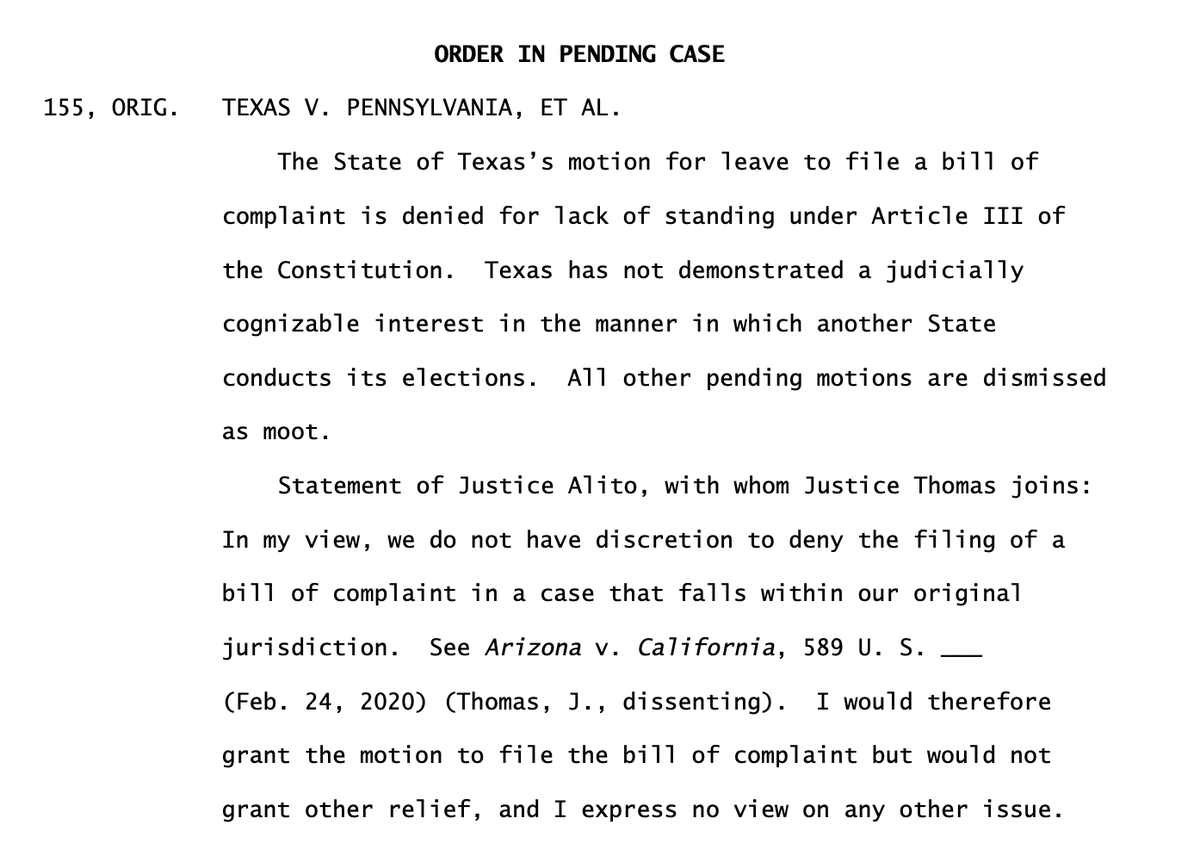
BREAKING: After 4 months of inaction, SCOTUS in a one-sentence unsigned order declines Trump's request to further postpone enforcement of a Manhattan DA subpoena for his financial records. The order clears the way for a NY grand jury to obtain the records & review them in secret.
Here is the orders list: supremecourt.gov/orders/courtor…
SCOTUS declines to take up a pair of leftover cases from the 2020 election. They involved the authority of the Pennsylvania Supreme Court to extend the state's mail-in ballot deadline. Thomas, Alito and Gorsuch say the court should have granted review.
https://twitter.com/AHoweBlogger/status/1363859952671092739?s=20
Here's the story from @AHoweBlogger on today's long-awaited order in the Trump v. Vance case involving the Manhattan DA's investigation into Trump's financial records. scotusblog.com/2021/02/justic…
• • •
Missing some Tweet in this thread? You can try to
force a refresh



